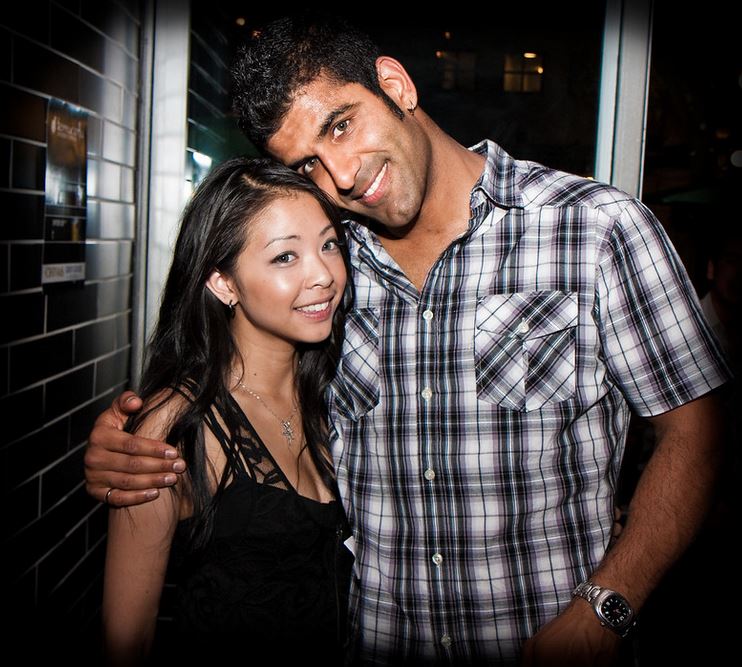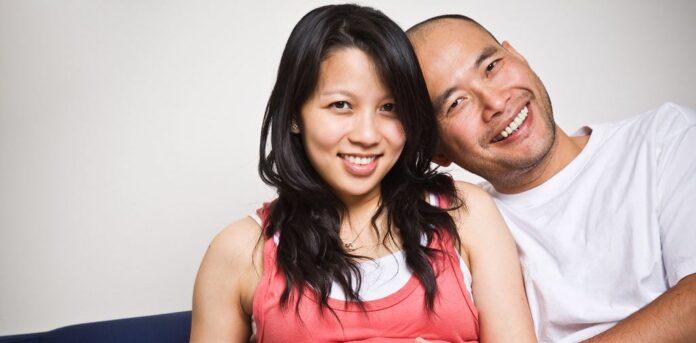By Rachel Tao, AsAmNews Intern
Violet is a Chinese American student at Georgetown University. Once, she went out on a date with another Asian college student, an international student from Beijing. They talked about the typical first-date topics—school, hobbies, and musical taste.
But there was one conversation subject she had not quite anticipated. Her date was curious about an American phenomenon he had noticed—violence targeting Asians. In the end, she talked about this phenomenon with him for far longer than expected, trading stories of their respective Asian experiences and expressing unease over the escalation of hate crimes against Asians.
A new data analysis of messages between over one million Asian users of the dating and live streaming app EME Hive indicates that Asians are growing more worried about the recent rise in anti-Asian hate crimes—and they are talking more about this fear. AsAmNews spoke with the founder of EME Hive, Mariko Tokioka, and an Asian single to discuss these new findings.
“Racial dynamics are always at the back of my mind when I navigate dating, but the pandemic has really taken that awareness to a whole new level,” Violet told AsAmNews.
Violet’s sentiments match Tokioka’s results. EME Hive, the largest dating app for Asians, analyzed the content of users’ messages to look for keywords, comparing how many were talking about anti-Asian hate crimes in 2020 and 2021. The analysis found a dramatic spike in conversations around anti-Asian hate since the pandemic began.
Tokioka summarized, “With 2021 data, we found the number of people talking about Asian hate crimes increased 231%. That’s a huge increase.”
Additionally, although there are no recordings of the live streams that happen on the app, Tokioka testified to people talking about anti-Asian hate there as well. “Not everyone is a direct victim,” she said. “But people say, ‘Yeah, this is happening around me. I’m scared.'” Even amongst users who live in regions of the country with fewer hate crimes happening, there is concern about California, New York, and other places where there have been more racially-motivated hate incidents.
All the findings help demonstrate that Asian Americans are talking much more about the COVID-19 pandemic rise in anti-Asian hate. Tokioka characterized the main emotions Asians are feeling as fear, anxiety, and concern.
“People are fearing more and more, and they’re concerned. And they’re talking about it more, not just that they’re feeling it, but they’re expressing it through dialogue.”
She continued, “What our users are saying really resonates with what’s happening in the world.”
It certainly resonates with Violet. “I feel extra aware of my racial identity now. Of course, it’s always a part of me, but Asian hate has really elevated that.”
That ever-present tension can often be a part of dating life for Asians. “As an Asian American, talking about hate crimes has become almost a cultural touchstone,” said Violet. “If I’m on a first or second date with an Asian American boy, it’s almost certainly going to come up at some point.”
Violet touched on experiences with non-Asian boys, too. “I sort of have to be vigilant. If they seem unaware of the rise in hate crimes targeting Asians, that’s a huge red flag that tells me a lot about who they are as a person.”

“Obviously, Asian hate crimes are a big issue in society,” said Tokioka, citing the 2021 Pew Research study reporting that 32% of Asian adults fear someone might threaten or physically attack them—a greater percentage than any other racial or ethnic group. Additionally, the vast majority of Asians surveyed, 81%, agreed that violence against them is increasing, far surpassing the share of all U.S. adults (56%) who say the same.
Tokioka stated that there has been a significant change in the prevalence of anti-Asian hate crimes since she started the app in 2013. In late 2021, the FBI reported that hate crimes against Asians rose 76% after the pandemic began. As many respondents of the Pew Research survey claimed, Tokioka said former president Donald Trump’s rhetoric about China and the coronavirus has been a major factor in this cultural shift. As Asians have become more concerned about hate crimes, Tokioka has noticed a corresponding rise in political engagement, in sharp contrast to the historical trend of Asian American communities being more apolitical. For example, influencers on EME Hive have been discussing politics on their platforms more and hosting popular fundraising streams for AAPI charities.
“The trigger point was Donald Trump stating that this was a ‘Chinese virus,’ so politics is very close to this matter,” she reflected. “And I see a lot more people talking politics lately.”
“Hate crimes have become a significant topic of discussion among Asian Americans at my university,” said Violet. “It’s such an important part of the discourse in Asian American communities now. And that’s sad, but it is also an opportunity to build community and solidarity.”
Tokioka called this growth in political engagement a positive trend but argued there is more room for Asian American communities to grow. “I still feel they are not talking loud enough to those outside the community. What I’m seeing is they talk about it within the community—’I’m scared, this should change’—but it’s not really coming out of the shell enough yet,” she said. “So I really want that change to happen. And these things like charity events spreading awareness, I hope that makes a change and makes bigger signals to those outside the community.”
“I’m glad to have seen the change with Asian Americans’ activism, especially with older generations,” said Violet. “It’s good that the community has not just responded with apathy but with anger and ambition to improve our conditions. It’s honestly been inspiring.”
When discussing what to do with the information gathered from EME Hive’s research, Tokioka highlighted the power of social media in the face of Asian culture’s value of privacy. In her opinion, Asians keeping trauma to themselves can suppress solidarity for Asians and awareness for non-Asians. She encouraged Asian Americans to speak out about their experiences and feelings of discrimination because it will help create a greater culture of openness. Additionally, she said, “We should all vote!”
“Spreading awareness through advocacy is one of our best shots,” said Violet, contemplating next steps. “I’m not surprised by the data, but hopefully, it changes over the coming years. Just having conversations about it helps change minds. In terms of dating, meeting new people, both Asian and non-Asian, is an opportunity to have those conversations.”
She concluded, “I hope the AAPI community will continue to mobilize and bring greater attention to these terrible occurrences of hate crimes. I think that of course there is more to do, but we’ve already done so much, and I’m proud of that.”
AsAmNews has Asian America in its heart. We’re an all-volunteer effort of dedicated staff and interns. Check out our new Instagram account. Go to our Twitter feed and Facebook page for more content. Please consider interning, joining our staff, submitting a story or making a financial contribution.



There is no doubt that there is a rise in hate crimes overall, and that Asians/Asian Amerricans are among the victims of such. Certainly some of the perpetrators are whites. That said, never underestimate media bias in the way that they present such issues. In reality, there is no basis for concluding that white people are necessarily the perps in all cases-or even proportionately more so than perps of other ethnicities.
For example, as of the moment there have been three widely publicized mass murder hate crimes that have come to light recently: the horrific slaughter in Uvalde, Texas–the mass shooting in a Taiwanese church (thankfully with minimal (if still tragic) casualties thanks to brave members of the church congregation–and the mass shooting in Buffalo. In which was the perpetrator white? Only the latter. In which do we see extended coverage and overall conclusions of hate crime applied–with relatively less coverage of the others? Only in the latter case. The corporate-controlled media pretends to have your best interests at heart in bringing up the issue of hate crimes against Asians–but only in the context that serves their propaganda narrative in driving a wedge between whites and Asians, It serves neither community’s interests in buying into that false and divisive narrative.